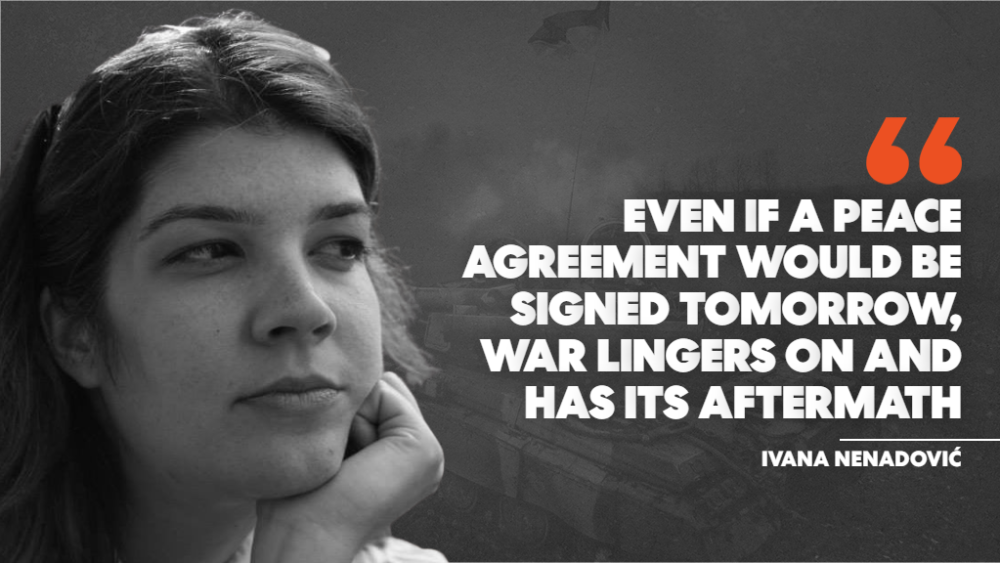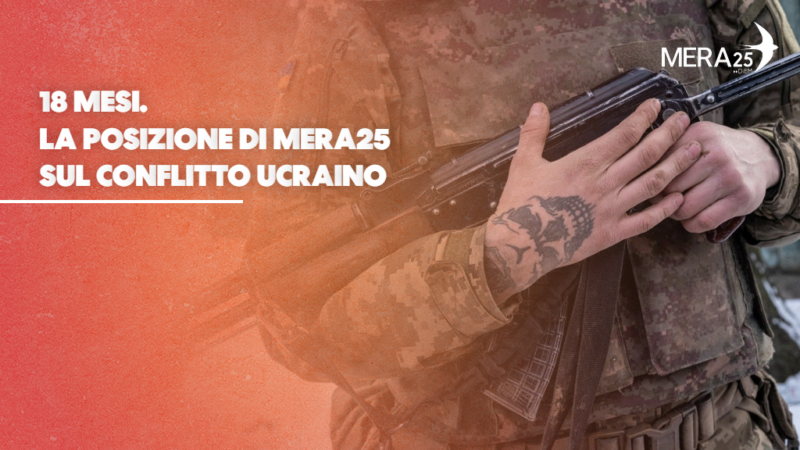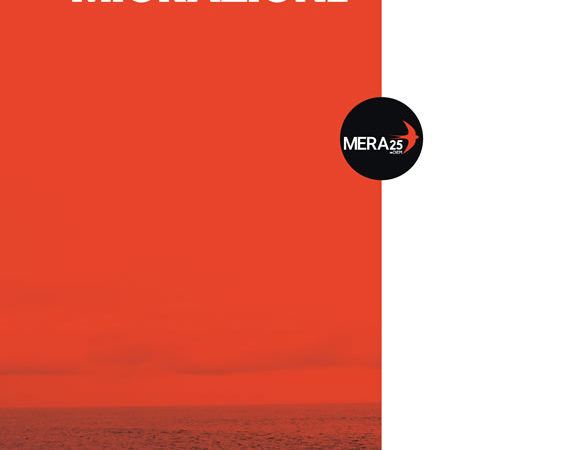Russia’s aggression against Ukraine has brought widespread condemnation. Yet despite good intentions from citizens across Europe to assist in the cause, there are also traps of the past that are important to avoid.
DiEM25’s Ivana Nenadović gave her perspective on what the world can learn from her personal experience which has parallels with the current situation that is unfolding today.
Increased NATO involvement in the conflict is among the most popular calls to remedy Russia’s actions but, having lived through NATO’s bombing campaign in the former Yugoslavia in the 1990s, Ivana stressed her concerns.
“I would like to mention another part of the war that is always brutal and never a solution – more arms and guns are not going to bring peace,” she said during DiEM25’s ‘How to end the war in Ukraine’ discussion.
Ivana is also concerned about the “war of words” that is happening at the same time, particularly from the left, and that disdain towards Russia’s government should not spill over to everyday Russian citizens.
“On the left I can see this need to be on the right side of history, this moral high ground that we will condemn Putin. And of course we should do that,” she said. “However, what I would like to emphasize from my experience is that when we say ‘Russia’, or when we say ‘Putin’, it also spills over to the people of Russia.
“There are progressive Russian people who are trying to fight this oppression for a very long time, just as we in Serbia tried to fight, and did fight, [Slobodan] Milosevic, and then we ended up being bombed.
“This is one big injustice that I can tell you about, it’s not something that will help too much, but it is something that is perceived as injustice, especially because this whole region of Eastern Europe, ex-USSR, ex-Yugoslavia is very difficult for our Western friends to understand and comprehend.
“And all of a sudden we have this big interest and ‘geopolitical knowledge’ about this region, which doesn’t really exist because of various reasons.”
Above all, Ivana warns against being lured into further division.
“Each side will have their own point of view. Of course, there is a history of oppression repression, and antagonism,” she added.
“And what we should do as an internationalist movement is to bring people closer together, to understand that war doesn’t end – even if I hope that it will end soon for Ukraine and the Ukrainian people, I doubt it will happen. And even if a peace agreement would be signed tomorrow, war lingers on and has its aftermath.
“And [judging by] ex-Yugoslavia or Serbia, because Serbia bears the legacy of Yugoslavia and everything that was bad and connected to Yugoslavia, it’s something that Russian people will suffer for a very long time, when Putin is gone and has his place in history books.
“But we must be careful about more divisions, especially on the left, on the side where people are thinking [in a way that is] progressive or humanitarian and trying not to create more divisions that we already unfortunately have.”
Volete essere informati delle azioni di DiEM25? Registratevi qui!




